Results
-
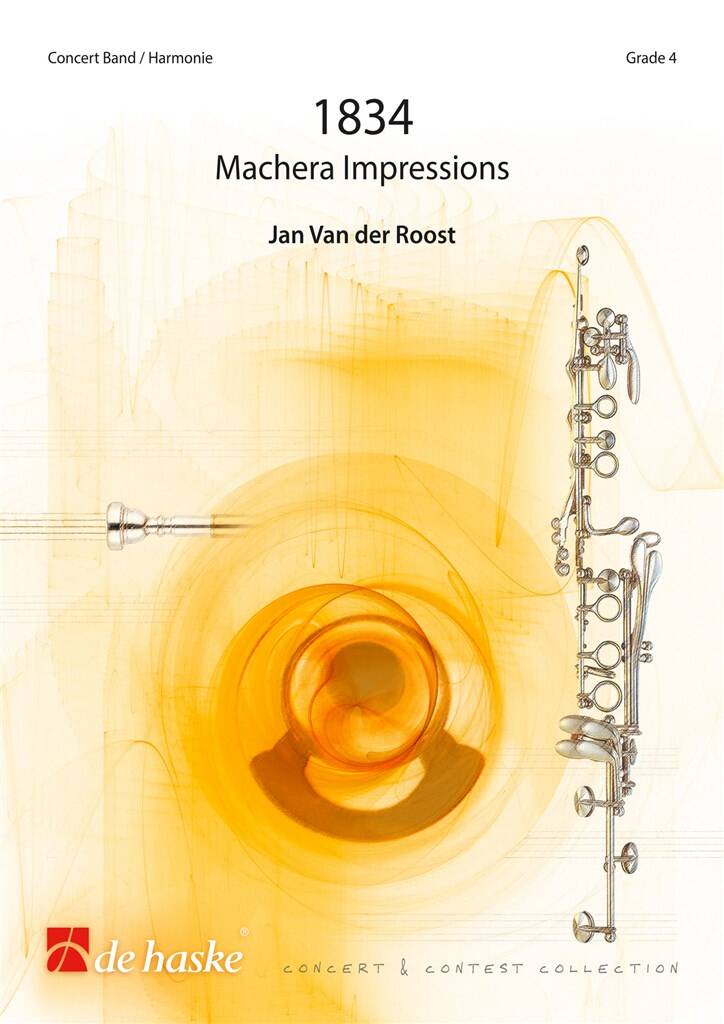 £159.99
£159.991834 - Jan Van der Roost
The twofold title of this concert work is directly connected with the band who commissioned it. The 'Harmonie Municipale Grevenmacher' from the town of the same name, by the river Moselle in the Grand Duchy of Luxembourg was founded in the year1834. The name Machera is derived from the word machara, which in turn originated from maceries (old wall). Later, Machera evolved into Machern, Grafenmachern, and finally Grevenmacher.In 2009, this music society the third oldest still in existence in the country celebrated its 175th anniversary. And after all these years the society still flourishes! The dynamic committee, led by Georges May, fully supports and inspires themusical leader of the band, Claude Weiland, as well as his 60-strong ensemble. This well-functioning team took the initiative to ask Jan Van der Roost to write an anniversary composition, inspired, on the one hand, by the rural character ofGrevenmacher and its surroundings (where the famous Moselle wine growing dominates the countryside), and on the other hand, by the dynamics, creativity and joie de vivre the band exudes. All of this resulted in a twofold work with alternating peaceand excitement, virtuous and melodic features, orchestral splendour and soberly orchestrated passages. The premire, on 10 January 2010, was conducted by the composer himself at a successful gala concert which brought a fine year full of musicalfestivities to a close. The 'Harmonie Municipale Grevenmacher' faces the future with confidence, and will now prepare for its next milestone: the 200th anniversary!
Estimated dispatch 7-14 working days
-
£45.95
The Eternal Pursuit - Jason K. Nitsch
This new contemporary work was premiered at the 2002 Midwest Clinic and is an excellent way to make use of all your percussionists. After an eerie introduction, a haunting melody is presented that continues throughout. This is definitely a unique and refreshing style which is very welcome at this grade level. Strongly consider this work from Texas composer and middle school band director, Jason Nitsch.
Estimated dispatch 7-14 working days
-
£50.50
Menuetto from Symphony No. 40 in G Minor, K 500 - Wolfgang Amadeus Mozart
With the 250th anniversary of Mozart's birth quickly approaching, you will want to take a look at this arrangement by Robert Longfield. This classical minuet comes from the third movement of Mozart's Symphony No. 40, considered by many to be one of his greatest masterpieces. With this transcription, you can finally bring this work to life with your concert band!
Estimated dispatch 7-14 working days
-
£66.95
A Showstoppin Christmas
Deck the halls with this Broadway-style yuletide treat! Your audience will be filled with the Christmas spirit after this uplifting medley. Chris Sharp brings his wealth of commercial arranging experience to bear in this holiday spectacular that includes everything from classical to swing and funk! Ideal as a closer or encore work, this grand finale is sure to bring the house down!
Estimated dispatch 7-14 working days
-
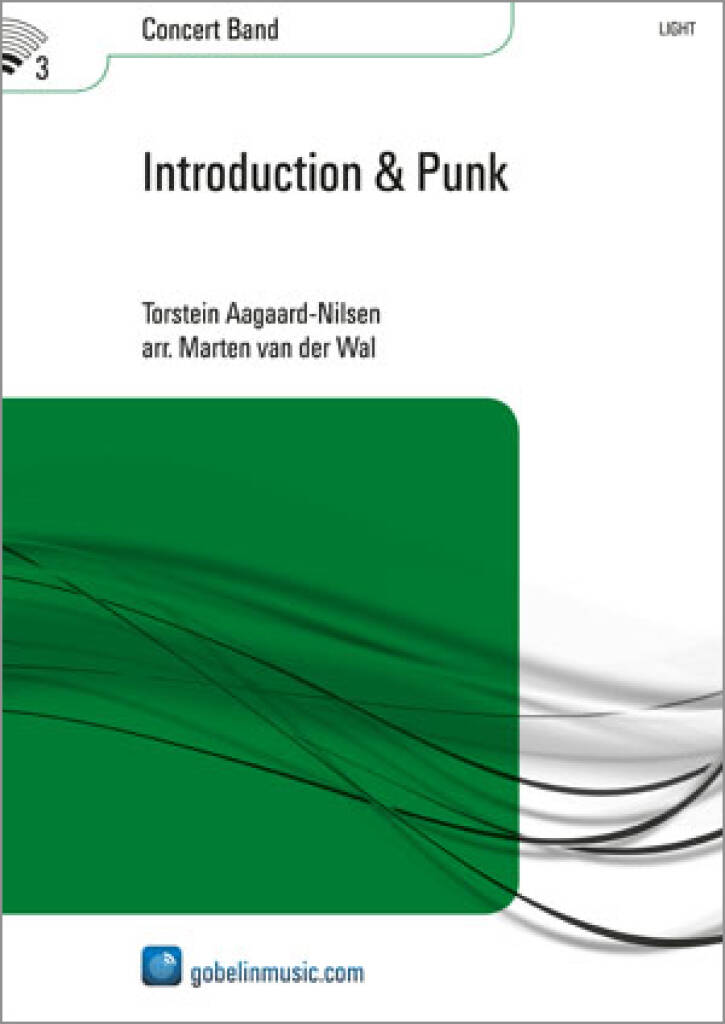 £76.99
£76.99Introduction & Punk - Torstein Aagaard-Nilsen
Torstein Aagaard-Nilsen's (1964) way of composing can be described as: uncompromising, wilful and contemporary. It is not surprising, therefore, that this occasionally causes a stir. In the middle of the Seventies a trend arose in youth culture, which was characterized by provocation, distrust of the great ideologies, and the autonomy of the individual. Punk is playful, aggressive, often humorous, and anti-everything, which inevitably leads to self-irony. The first part of Aagaard-Nielsen's composition (Introduction) is a texture based mainly on one short theme. This pompous theme breathes a spirit of cold empty plains, where icy winds sigh around yourhead. In the vehement Punk (Presto barbaro!) there is no longer any question of a theme. The basis for this part is formed by a repetitive motif (a descending minor third). This motif is alternated with very powerful percussion beats and later on shrill harmonies.
Estimated dispatch 7-14 working days
-
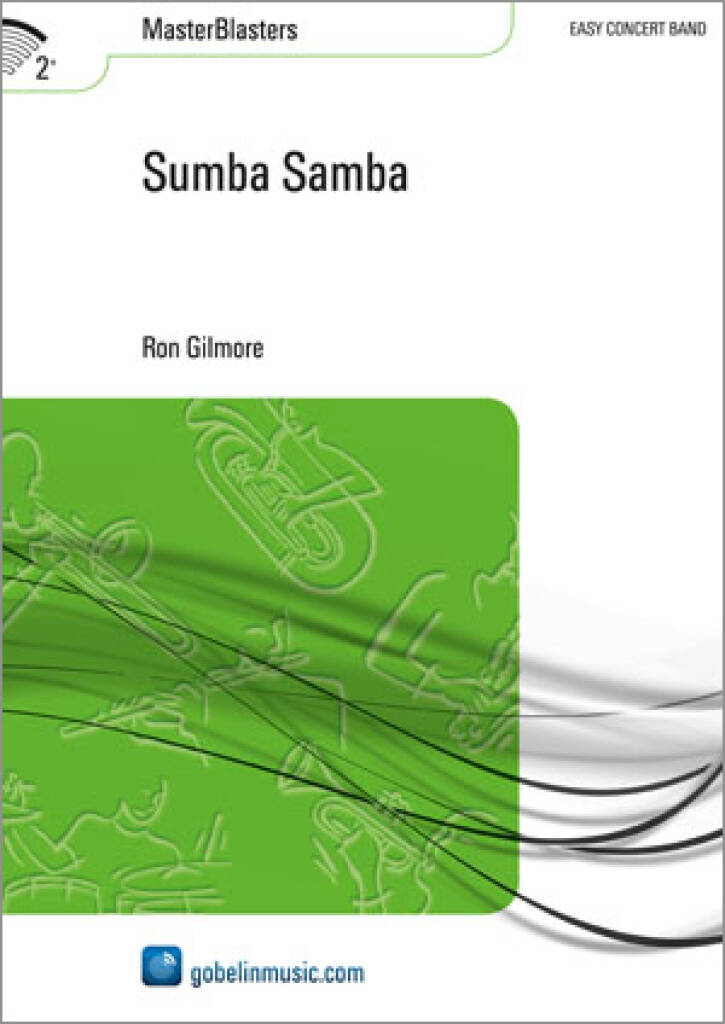 £60.99
£60.99Sumba Samba - Ron Gilmore
The Samba is a Latin American dance, which is mostly associated with parties, as a result of the fast tempo in which it is usually played. 'Sumba Samba' forms an exception to this rule. In order to get this samba to swing it is important to stick to the tempo prescribed. 'Sumba Samba' starts with a motif which will play an important role throughout the piece. This motif can be heard in the first notes of the 'refrain' and, as said before, has been used in the introduction, as well as in the transition after the middle part (letter G). Furthermore, it plays an important role in the middle part itself (letter E), in which the samba has momentarily disappeared and acompletely different atmosphere has been created. At letter H we pick up where we left off with the samba and swing to the end of this composition.
Estimated dispatch 7-14 working days
-
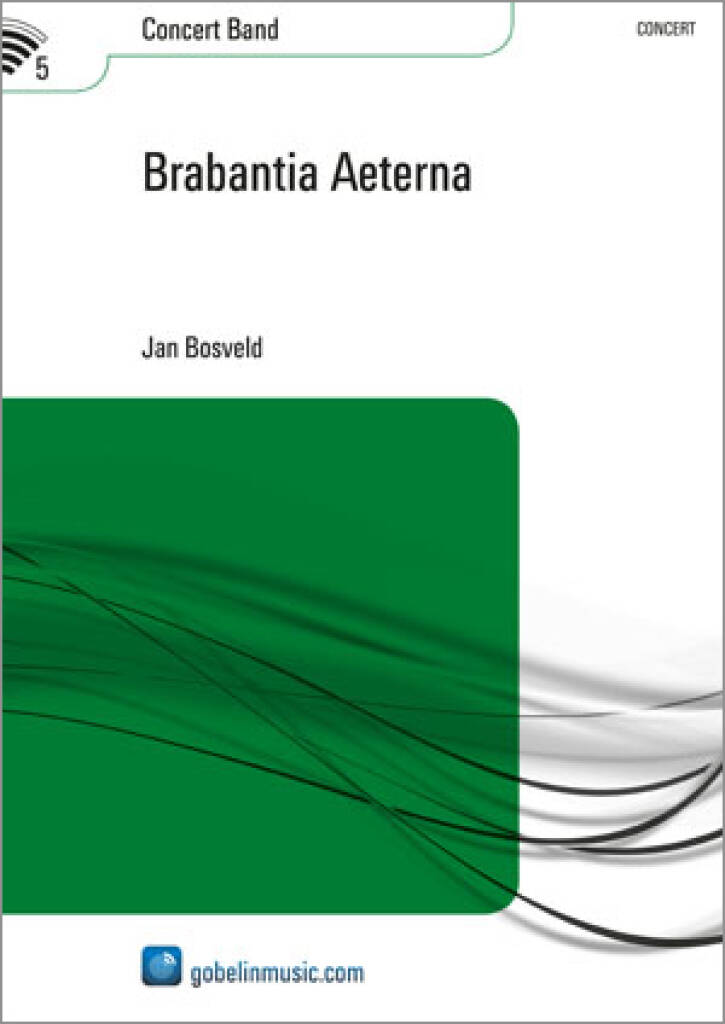 £244.99
£244.99Brabantia Aeterna - Jan Bosveld
In 2006 Brabant will be celebrating it's 900th anniversary. On May 13th 1106 the count Van Leuven was appointed duke of Brabant. This was the birth of the duchy of Brabant. For centuries this duchy, situated in the heart of the Netherlands, was the primary of the seventeen provinces in the Lowlands. Brabant formed with it's capital cities Brussels, Leuven, Antwerp and 's-Hertogenbosch the focal point for politics, culture and economy. The revolution against Spain (1566-1648) caused a fracture between the North and South. The old duchy was divided into a Dutch and Belgian part. Even though each had their own historical background, the bond forged in the past was partially keptalive. To this day we still have a duke of Brabant. Brabantia Aeterna takes you on a musical journey through 900 years of Brabant history. A fascinating journey portraying war and peace, love and grief, prosperity and adversity, development and deterioration. Listen to how monks chanted, bells tolled and churches were built. Or take the thirteenth and fourteenth centuries with their bustling markets, builders of cities or the bleating of countless sheep across the heather. The plague, tribulations, soldiers and political bickering in the following centuries. Hear how the industrialisation of the nineteenth and twentieth centuries provided prosperity for the region and how to this day the following saying still applies: 'the road to Brabant leads to a warmer world' Brabantia Aeterna was commissioned by the Brabantse Bond van Muziekverenigingen (Brabant Music Society) in honour of its fifth anniversary.
Estimated dispatch 7-14 working days
-
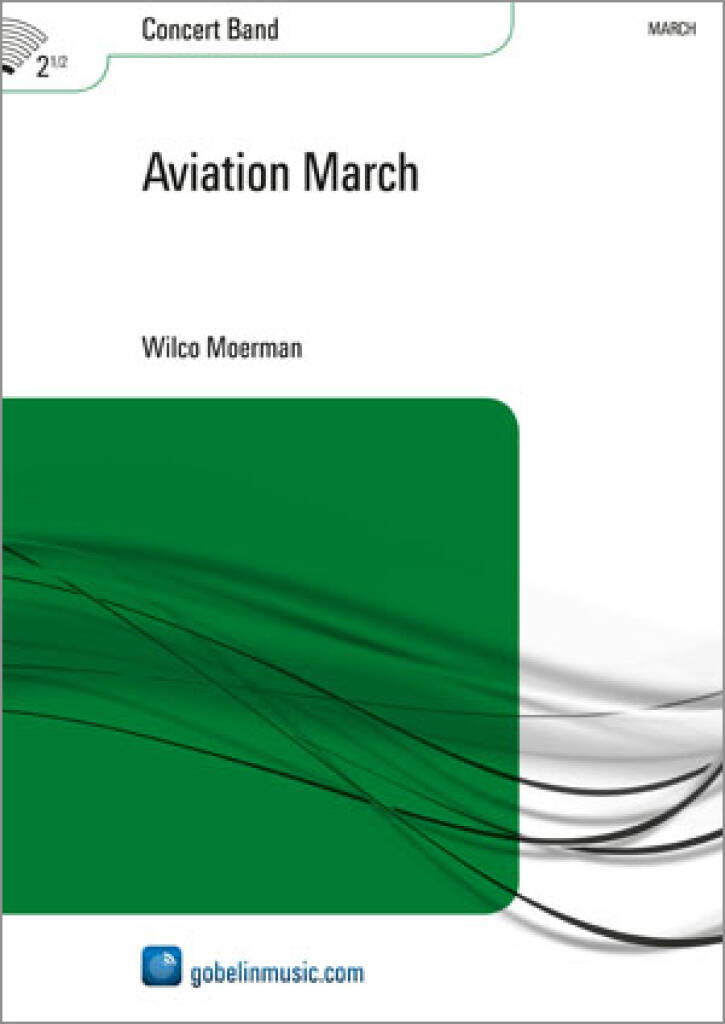 £89.99
£89.99Aviation march - Wilco Moerman
Mankind has always had the desire to fly. Initially we tried to imitate birds to fly, which eventually resulted in the invention of balloons, airships, gliders and powered aircrafts. The first airship in the world that could fly in a controlled way, was invented by Henri Giffard. This airship flew on September 25, 1852 from Paris to Trappes. The ship was 43 meters long and flew 8 km per hour over a distance of 27 km. Other key names for the many changes and developments of the aviation industry, are the Wright brothers on December 17, 1903 with their first motorized flight, of 12 seconds over a distance of 37 meters with a homemade motorized aircraft called the Flyer. Later the same day this record was improved by a flight of 60 seconds over a distance of 260 meters. The first flight across the Channel between England and France was made by Louis Blriot on July 25, 1909. The distance of about 45 km was covered in a time of 37 minutes. In 1910, the first woman, a French pilot (Raymonde de LaRouche), made her first solo flight. She was also the first woman who got a license to fly.This march is a tribute to the many years of development within the aviation industry and gives voice of the pride, the romance, the heroism and the status of this way of transportation.
Estimated dispatch 7-14 working days
-
£79.99
Scherzo from Symphony No. 5 - Dmitri Shostakovich
The second movement of Shostakovich's masterful and subversive Fifth Symphony, written as his career as a composer in communist Russia teetered in the balance, could suggest a barely literate composer from the Bureau of Artists coming to the great Shostakovich to demonstrate, through a most grotesque dance, how simple it is to compose great music under the Soviet System. This transcription of the Scherzo movement was produced by Mark Rogers, who also transcribed the complete symphony. In the transcription of the complete work, all of the music remains in the original key, while in this publication, the second movement is transposed down a whole tone to G minor. Other than the transposition and the removal of some of the more rarely found instruments (E flat clarinet, contrabassoon and harp), the music is intact, and represents the composer's intentions in every way. Conductors who choose to perform this piece will introduce their players to this important voice in Twentieth Century music and bring major issues about political life and its impact on creative life to their students in the most relevant fashion.
Estimated dispatch 7-14 working days
-
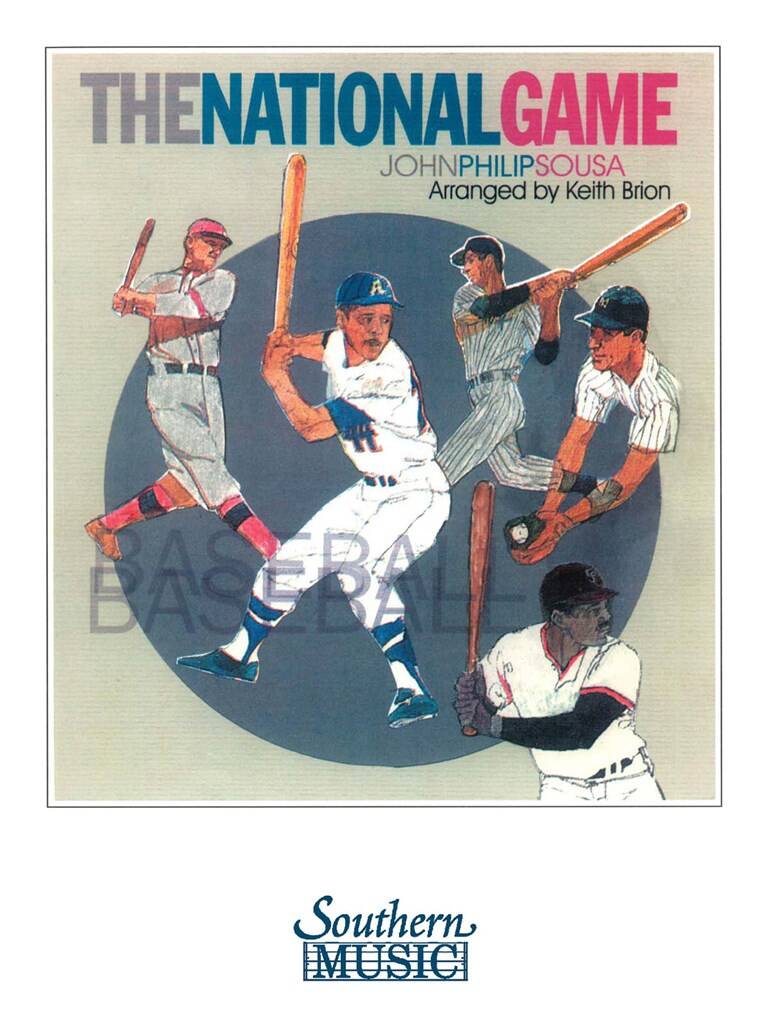 £114.99
£114.99The National Game - John Philip Sousa
Part of the New Sousa Band Editions, celebrating the compositions and performance practices of this American composer and his legendary band. This piece was originally commissioned by Judge Kenesaw Moutain Landis, baseball's highcommissioner, on the occasion of the fiftieth anniversary of the National League. In this edition, Keith Brion has taken his knowledge of Sousa band instrumentation history and arranged a modern version that accounts for the SousaBand sound with contemporary instrumentation. Featuring a part for baseball bat, this piece offers a fun opportunity for the percussion section or for a guest musician/athlete to join the band.
Estimated dispatch 7-14 working days
